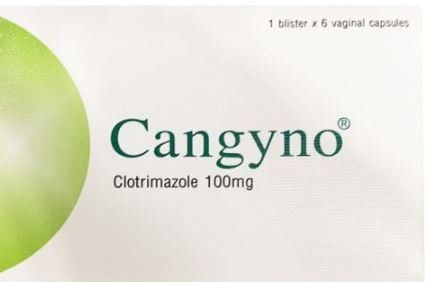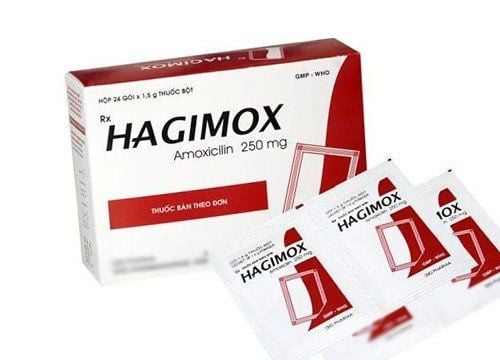This is an automatically translated article.
The article was consulted with Specialist Doctor I Tran Van Sang - Dermatologist - Department of Medical Examination & Internal Medicine - Vinmec Da Nang International General Hospital.Gonorrhea is one of the most common sexually transmitted diseases, endangering the health of both women and men. Especially for women, the disease often has difficult-to-recognize symptoms, making women unaware and prompt and proactive treatment.
1. What is gonorrhea in women?
Gonorrhea is a sexually transmitted disease caused by a bacteria. The disease is easily transmitted during sexual activity in both men and women through different routes such as mouth, anus, or vagina with a previously infected person. It can also be transmitted from mother to child during pregnancy, through vaginal secretions and semen.Gonorrhea in women often has symptoms similar to gynecological infections. This is the reason why women are subjective and do not pay attention when detecting the body has early signs.
2. Symptoms of gonorrhea in women
Symptoms of gonorrhea in women often do not have many obvious symptoms and can be mistaken for a vaginal or bladder infection, even in some cases, the patient has no symptoms of the disease. Women infected with gonorrhea will have acute symptoms such as painful urination, pus discharge from the urethra, from the cervix, which is solid yellow or greenish yellow in large quantities, with a bad smell. Patients with gonorrhea have pain during intercourse, and symptoms of lower abdominal pain.
Women with gonorrhea when examining the cervix will see signs of redness, edema, touching, there are signs of bleeding, pus draining from the uterine tube. The ureter is red, with pus flowing out from the inside or sometimes only cloudy fluid.
Women with gonorrhea must immediately think that they have gonorrhea when the simplest symptoms include:
Unusual or more discharge (white or light yellow liquid) from the vagina Pain and/or pain when urinating or during sex. Abdominal or back pain. Bleeding even though it's not a period. In more severe infections, fever. Or there will be signs of a rectal infection with symptoms occurring in both men and women with gonorrhea including:
Discharge; Anal itching; Soreness; Bleed; Painful bowel movements...

3. Who is at high risk for gonorrhea?
Women having sex without using latex or polyurethane condoms. Women have many sexual partners. Women who carry another sexually transmitted disease or HIV. Women who have sex while under the influence of drugs or under the influence of alcohol.
4. How to detect gonorrhea?
When there are symptoms of gonorrhea in women mentioned above, the patient needs to visit an obstetrician-gynecologist to perform the necessary tests to properly determine the status of gonorrhea in a woman. The patient will have the doctor take fluid or pus from the cervix, urethra, anus and the Skene, Bartholin glands in women for testing. The test method is to make Gram-stained slides for microscopy and isolate the bacteria on a medium specific to gonorrhea in Thayer Martin's medium and make an antibiogram. From there, it gives accurate results whether you have gonorrhea or not.
Gonorrhea is completely curable if detected early and treated with appropriate methods. It is important in the treatment of gonorrhea in women to adhere to the use of drugs prescribed by the doctor, not to share drugs with other patients, and to have absolutely safe sex to limit the spread of the disease to partners. .
5. If not treated, how dangerous is gonorrhea in women?
Gonorrhea is a dangerous disease for both men and women if left untreated, especially for women. Some dangerous complications of gonorrhea in women can be mentioned such as:
Formation of scar tissue that blocks the fallopian tubes. Ectopic pregnancy (pregnancy outside the womb). Infertility (inability to get pregnant). Long-term abdominal/pelvic pain.
6. What should I do to protect myself from being infected with gonorrhea?
The only 100% effective way to prevent gonorrhea is not to have sex. If you have sex, you can limit your risk by following these steps:
Always use a plastic or synthetic condom, or a mouth guard (dental block) when having sex with mouth and/or vagina and anus. Condoms made from "natural" materials may protect against pregnancy, but do not prevent STIs. Minimize the number of sexual partners if you choose to have sex. Talk to your partner about their STI status and get tested. Discuss safe sex with your doctor, and get tested. Sex under the influence of drugs and/or alcohol may increase the risk of unprotected sex. Contact your doctor if you feel any of these symptoms. One of the ways to prevent and detect early gonorrhea in women is to go for screening for social diseases for early treatment, minimizing complications of gonorrhea on reproductive health. The examination package applied at Vinmec International General Hospital has been trusted and chosen by many customers.
Please dial HOTLINE for more information or register for an appointment HERE. Download MyVinmec app to make appointments faster and to manage your bookings easily.
Article referenced source: Department of Preventive Medicine













